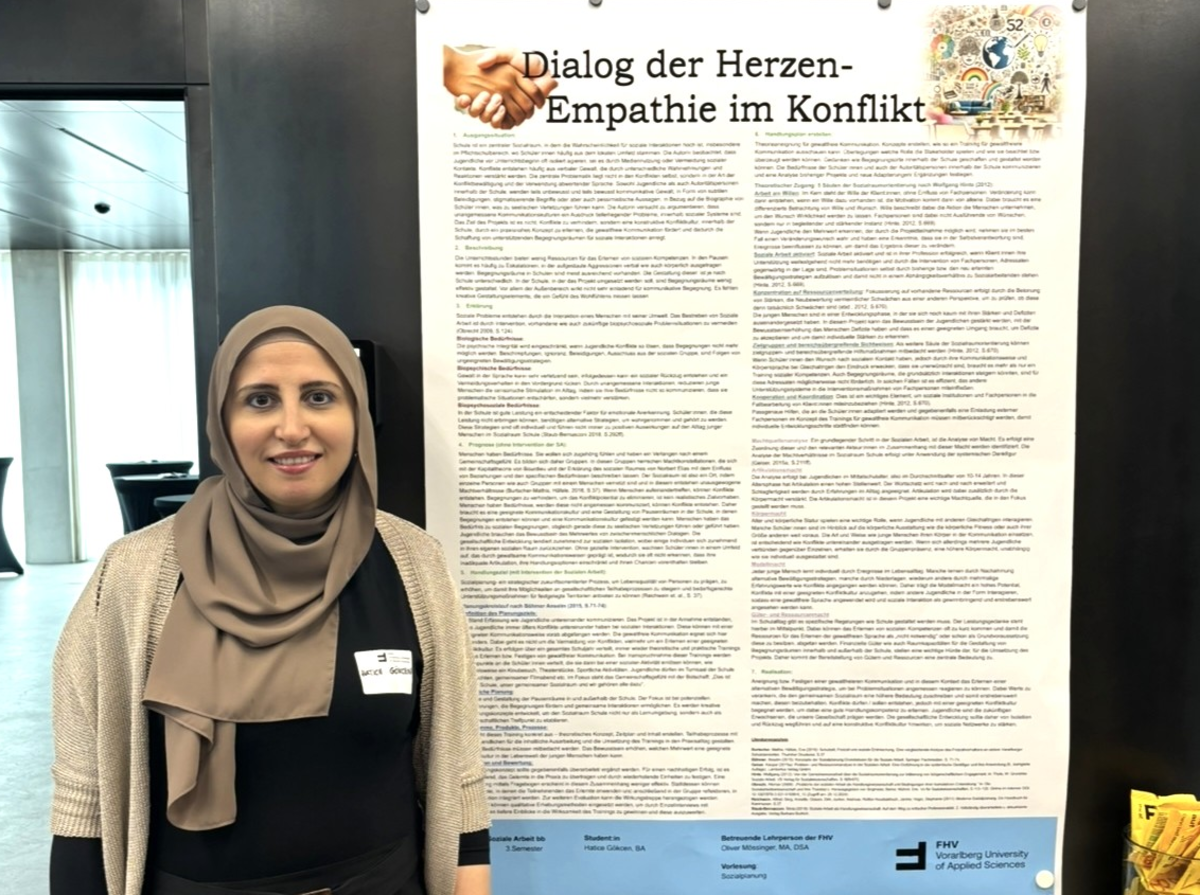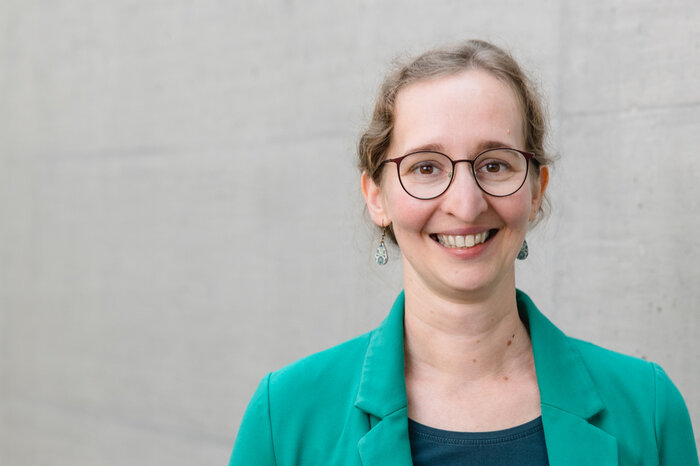Social Work
Master's degree, part-time
In the Master’s degree programme in Social Work, you will deepen your expertise in providing professional support to people in complex life situations. You will engage closely with current social changes, social participation, and practice-oriented solutions that have a direct impact on everyday life. You will have the opportunity to specialise in one of two dynamic fields: Clinical Social Work or Community-Based Social Work.
Upon completion of the programme, a wide range of career paths will be open to you. In Clinical Social Work, you will support individuals experiencing psychological distress and help them reintegrate into society. In Community-Based Social Work, you will play an active role in shaping social environments and promoting inclusion and social justice—right where people live and work.
The 120 ECTS credits are distributed across 4 semesters and include compulsory modules, elective specialisations, and the Master's thesis.
- Elective specialisation: You choose your elective specialisation from the following areas in the 1st semester and thus determine the subjects of the following semesters.
- Clinical Social Work
- Comnunity-based Social Work
- CS (Context Studies): Selection of 1 or 2 modules amounting to 12 ETCS (we recommend 6 ECTS per semester) ▷ More information.
- EN: Study Course in Englisch
- E: Elective course: In the 4th semester you choose an elective course amounting to 4 ECTS.
- ECTS: Credit points according to the "European Credit Transfer System". In accordance with international standards, 120 ECTS points must be earned over 4 semesters.
Course content in detail
- CS: Contextual studies
- ECTS: Performance points according to the "European Credit Transfer System". According to international standards, 180 ECTS points must be earned over 6 semesters.
The programme alternates between attendance at the FHV, e-learning units, self-organised learning, and group and project work. To achieve a good balance between work and study, it is recommended that you reduce your working hours to 50–70% and plan for around 15 days of holiday per year for your studies.
Courses and examinations take place:
- Generally Friday afternoon and evening, Saturday all day
- Online lectures in the 1st semester Thursday evening
- Contextual studies on Thursday evening and/or as block weeks
The Austrian Public Employment Service (AMS) supports you in your further education with funding measures. Information at: www.ams.at (part-time education, educational leave).
- Admission to the final oral examination:
- all courses in the curriculum must have been successfully completed (examination regulations and grading scale) and
- the Master's thesis must have been graded positively.
- Degree awarded: Master of Arts in Social Sciences, MA
- Level of the degree according to the national and European qualifications framework: Master (2nd cycle)
- Field of study according to ISCED-F code: 0923 - Social work and counselling
Career perspectives
Depending on your chosen specialisation, a range of exciting career paths will be open to you after graduation. In Clinical Social Work, you will work at the intersection of psychosocial support and the healthcare system. Possible fields of employment include psychiatric hospitals, psychosocial counselling centres, addiction support services, and community mental health services. In these settings, you will provide professional support to individuals with mental health conditions, addiction issues, or psychosocial crises—playing a key role in their stabilisation and reintegration into society. Community-Based Social Work offers the opportunity to actively shape social participation. You might work in areas such as neighbourhood development, community management, or municipal social planning. Your tasks will include analysing social structures, developing tailored services for diverse target groups, and promoting equal opportunities, civic engagement, and social justice. The close collaboration with residents, civil society actors, and political decision-makers makes this field especially dynamic and full of potential for meaningful impact.
In addition, your degree qualifies you to pursue further academic studies, such as a doctoral or PhD programme at a university.
Access and application
The Master’s degree programme in Social Work at FHV requires the following qualifications or competencies:
- Completed Bachelor’s or Diploma degree in Social Work as well as Social Education, or
- Diploma from the at least 3-year Academy for Social Work (admission without or with conditions after review by the programme director), or
- Completion of an equivalent degree programme (social or human sciences) at a national or international educational institution comprising at least 180 ECTS.
- With professional experience:
In a field of Social Work with at least 1,500 hours, you will receive admission to the programme without conditions. This professional experience must be proven by an employment certificate or a job reference uploaded in the online application. In individual cases, the programme director decides on the relevance of your professional experience and your foundational knowledge. - Without professional experience:
Admission is also possible in this case. However, the programme director may impose conditions on you (e.g. by attending additional relevant courses). If you cannot present any or only limited proof of your competence, FHV or Schloss Hofen offers recognised continuing education courses on relevant topics.
- With professional experience:
Proof of German and English language at level B2 of the CEFR (Common European Framework of Languages). More infos here.
The application deadlines at the FHV are divided as follows:
Application Period I - 15 November – 1 March
Apply by 1 March to benefit from an early admission decision.
Application Period II - until 31 May
You can apply for all study programmes regularly until 31 May.
Application Period III - until 31 August
Some programmes may still offer individual places until 31 August.
Note: The application deadline for applicants from third countries (non-EU/non-EEA, except Switzerland) is 1 March.
Step 1:
Assessment of your complete application documents, your prior education, and relevant experience.
Step 2:
In a personal interview, we get to know you better – your goals, your motivation, and your reasons for choosing this degree programme.
Previous study achievements can be credited individually in individual courses during your studies. This also applies to coursework that you have already completed at a recognised college or university. The equivalence of the acquired knowledge with the requirement profile with regard to the content and scope of the courses to be waived will be checked upon your application. If equivalence is determined, positively completed examinations will be recognised. A knowledge check is not planned in these cases. You will receive details on this in a meeting with the programme director.
Do you still have questions about the study programme?
Please feel free to contact us directly for consultation:
| Friday | 09:00 - 11:30 AM | 1:00 - 3:00 PM |
or individual appointment


